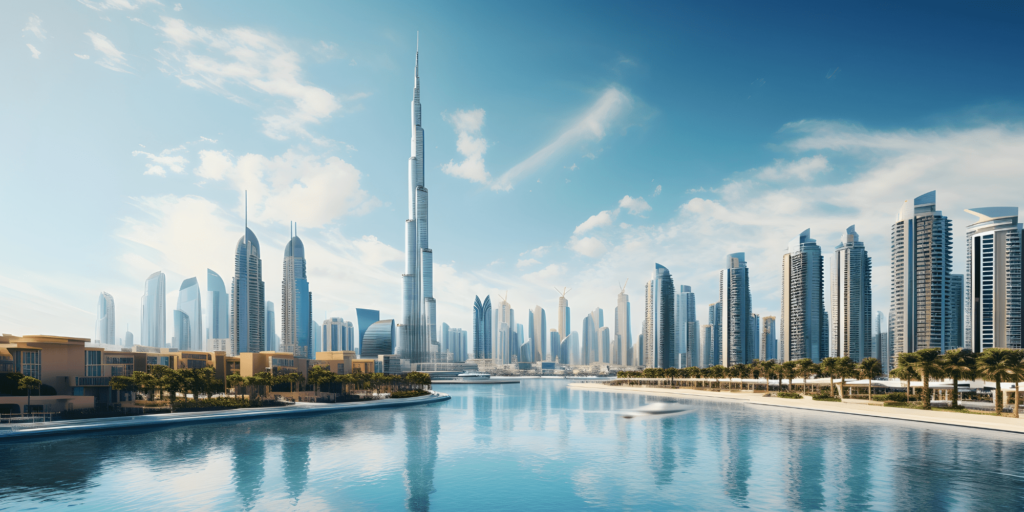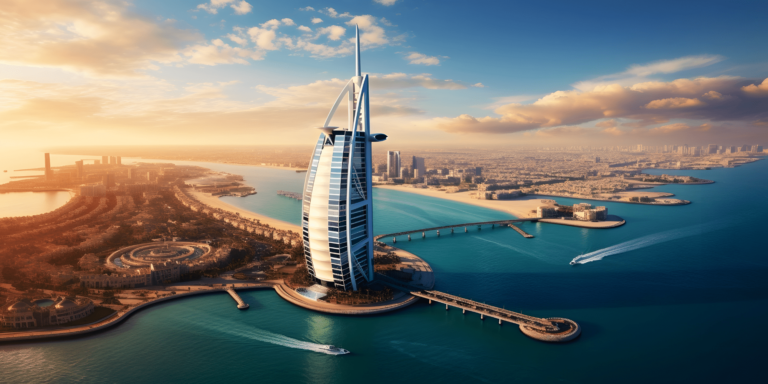The strong demand and performance are expected to continue throughout the rest of the year.
In Abu Dhabi, the office leasing sector saw a notable 15.9% rise in rental registrations during the second quarter compared to the previous year. Rental rates also increased, with Prime, Grade A, and Grade B segments experiencing rises of 9.1%, 7.4%, and 14.5%, respectively. This trend of robust demand and performance is anticipated to persist in the latter half of 2024.
Dubai’s leasing activity surged dramatically in the second quarter, with a 38.4% increase in rental registrations year-on-year. Most transactions involved spaces under 2,000 square feet. Rental growth was strong, with increases of 4.7%, 19.9%, 20.9%, and 15.0% in the Prime, Grade A, Grade B, and Grade C segments, respectively.
In Abu Dhabi’s residential sector, sales transactions dropped by 22.8% to 2,108 in Q2 2024 compared to the previous year. However, average prices for apartments and villas increased by 6.2% and 3.9%, respectively. Although rental registrations fell by 9.5% to 41,368, average rents for apartments and villas rose by 6.6% and 2.5%, respectively. During the first half of 2024, 1,445 new units were completed, mostly in Al Maryah and Yas Islands, with an additional 6,791 units anticipated, primarily in Al Sowwah and Yas Island.
Dubai’s residential market remained strong, with average prices increasing by 21.3% from the previous year, up from 20.1% the previous month. This rise is attributed to a 20.7% increase in apartment prices and a 24.3% increase in villa prices. To date, 12,249 units have been delivered in Dubai, with 44.4% in Meydan One, Al Furjan, and Jumeirah Village Circle. Dubai also recorded a record 73,618 residential transactions, a 27.6% increase from the previous year. Off-plan sales rose by 41.0%, and secondary market sales grew by 8.2%. The strong performance in Dubai’s residential sector is expected to continue.
The UAE’s hospitality sector is thriving, with increased visitation leading to higher occupancy rates and revenues. Average occupancy rates have risen by 1.7 percentage points year-on-year up to June 2024, and the average daily rate (ADR) increased by 5.8%. RevPARs also saw significant increases in various locations. Despite a predicted summer slowdown, the sector remains resilient and is expected to experience continued growth in key performance indicators, driven by upcoming major events.
In the retail sector, Dubai saw a slight 0.1% increase in rental registrations in Q2 2024, totaling 17,509. Renewed contracts rose by 4.4%, while new registrations fell by 8.6%. In Abu Dhabi, retail rental activity was slower, with a 10.2% drop in total contracts to 7,048. New rental contracts increased by 13.8%, but renewed contracts declined by 20.5%. Retail rents increased by 3.6% in Abu Dhabi and 6.0% in Dubai. Further rental rate increases are expected given the current market conditions.

The industrial and logistics sectors in the UAE showed mixed activity in Q2 2024. Abu Dhabi saw a 4.1% decline in rental registrations, though new registrations increased by 3.1% and renewed contracts decreased by 8.4%. Dubai experienced a 2.5% rise in registrations, driven by a 3.0% increase in new and a 2.3% increase in renewed contracts. Rents in Abu Dhabi grew by 4.7%, while Dubai’s rents increased by 10.6%. The market’s fundamentals are expected to sustain performance into the second half of the year, with anticipated rent growth and a rise in new institutional-grade assets.
Taimur Khan, Head of Research MENA in Dubai, remarks that the UAE real estate sector is demonstrating strong performance halfway through 2024, defying global trends with high prices, rents, and transaction volumes. Supply constraints may impact activity levels across sectors, but these challenges are likely to support ongoing price and rental growth. Developers are responding to high demand by advancing their projects to address the stock shortages and maintain market activity in the long term.


